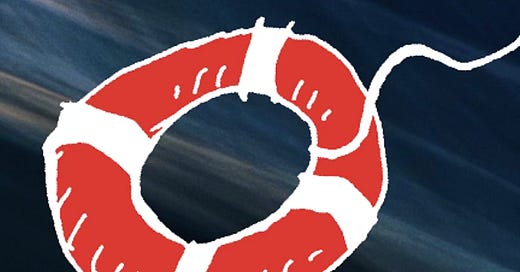‘Django, come back. Django! DJANGO!!’
The calm of the day was sharply interrupted as Django raced away from his owner, making a beeline for a huddle of ducks at the edge of the park pond. Dogs do that kind of thing.
As Django closed in on them, the ducks fluttered away wearily (they have to put up with dogs every day), leaving their pursuer looking perplexed and triumphant in equal measure.
Animals, like Django the dog and us, react. Django, as far as I know doesn’t think about the state of the planet, but just reacts to a stimulus. As human beings, we have the capacity to think ahead and about things beyond the end of our noses and some of us do, some of the time.
That was a story about a dog; the rest of this article is about us.
A few weeks ago, I was chatting with the server in a lovely park café in Richmond, London where I write. I told her that I was writing about how to live well in turbulent times.
Server: ‘It’s all terrible isn’t it, I don’t look at the news anymore. It’s even worse in my country’
Me: ‘Do you want to know what’s happening?’
Server: ‘Not really, and anyway every time I speak with my parents they tell me about everything’
All I know about the server comes from this conversation - she serves good coffee, does her work with smiles and comes from an Eastern European country. Maybe that day she was thinking deeply about the times we are living through, maybe not, just getting through her café day.
Turbulent times - crumbling democracies, threats to freedom, climate breakdown, global conflict, approaching asteroids, that kind of thing. We each react to our times, sometimes thoughtfully, often with no thought at all. Either way, IT’S HAPPENING. See here
Here are some of the reactions I am noticing. I can see a bit of myself in these five types of reaction - maybe you see yourself a bit in here too?
1. IGNORE AND SHUT OUT what’s going on (It’s awful, I’m hiding under the duvet / It’s a long way away, doesn’t affect me / I’m busy-busy with other people and things / I look away)
2. DULL THE PAIN by over-work, alcohol, drugs, dark laughter covering tears and other distractions (Head down / check out / I’ve got to keep going, feed the family, earn money, get through the day / I’m so tired but I’ll keep going anyway.)
3. GET OVERWHELMED, GIVE UP (I can’t stop myself turning on the radio and TV every day / I’m drowning in the horrors / I haven’t slept well for months, / it’s too big and bad / I can’t do anything about it and I’ll probably be dead by then anyway / I can’t take it any more)
4. FIGHT with clenched fist and tight jaw, get up front and fight ‘them’ (Make a noise / Stand up to them / I’m grieving at what we are losing / I’m exhausted, but I’ll keep on fighting anyway)
5. JUMP ON THE BANDWAGON of blame, anger, vengeance, othering and the like (‘I can’t beat them, so I’ll join them / kill is better than be killed). I cannot and do not recommend this, but do know that these kinds of thoughts are in all of us.
Am I, are we, channelling our inner Django by reacting without thought to a stimulus and giving in to our habits? I see many people who are reacting broadly the same way as we are and individual reactions become group reactions. We each look around and see other people reacting the same way; as we are in our ‘bubble’, our own habitual reaction is confirmed and strengthened.
How much Django am I? How often do I, do we, simply react rather than choose to reflect and respond, to exercise our agency, to find our own power?
‘The one thing you can’t take away from me is the way I choose to respond to what you do to me. The last of one’s freedoms is to choose one’s attitude in any given circumstance.’ (Viktor Frankl, referring to his experience of Second World War concentration camps.)
If we choose to exercise our freedom to reflect and respond, we are choosing a sixth option:
6. Transform the bad stuff that’s happening into good stuff. I am starting with what I can influence ie the bit of the world close to me, family, friends, colleagues, neighbours, the person in the street: decency and civility one conversation at a time. I want to be able to exercise choice, my choice, for myself, one conversation at a time. I can and I do recommend this choice.
Next week SEVEN THINGS TO CONSIDER
This Live Well in Turbulent Times series accompanies the best seller and idiosyncratic novel business book ‘Good Leaders in Turbulent Times: How to Navigate Wild Waters at Work’ which is packed full of practical advice for leaders going through crises and emerging stronger. Act on the nuggets of advice that shine bright for you.







I love the quote from Viktor Frankel. Or as Mark Carney said every day on the campaign trail: we can't control President Trump but we do have agency. "Nous sommes maîtres chez nous."
The sixth choice is by far the best option.